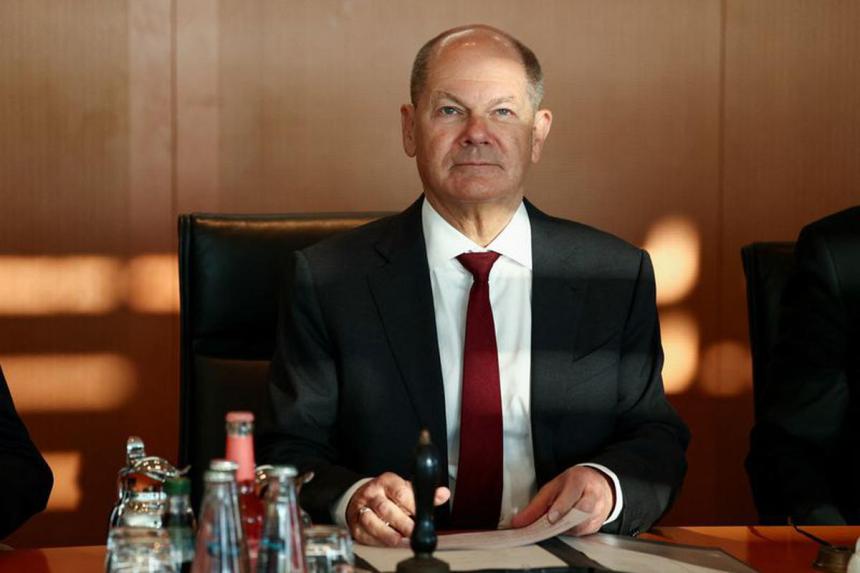Will Scholz Restore Germany's Leading Role In Europe?

Table of Contents
Scholz's Domestic Policies and their European Implications
Scholz's domestic policies have profound implications for Germany's ability to lead within the EU. His success in navigating these internal challenges will directly impact Germany's capacity to contribute to European stability and prosperity.
Economic Strength and EU Stability
Germany's economic prowess is a cornerstone of EU stability. Scholz's economic policies, particularly concerning the energy transition ("Energiewende") and industrial competitiveness, are vital to maintaining this strength.
-
Analyze the impact of the "Energiewende" on German and EU energy security: The transition to renewable energy sources presents both opportunities and challenges. While it aims to enhance long-term energy independence, the short-term costs and potential disruptions to energy supply require careful management to avoid negatively impacting the wider EU economy. Successfully navigating this transition is crucial for Scholz's leadership aspirations.
-
Discuss the role of German industry in driving European economic growth: German manufacturing and engineering remain powerful drivers of European economic growth. Maintaining the competitiveness of German industries is essential for supporting the overall EU economy and fostering economic integration. Scholz's policies aimed at supporting innovation and industrial competitiveness will be critical here.
-
Examine the implications of German fiscal policy on EU budget negotiations: Germany's fiscal strength and its approach to EU budget contributions significantly influence EU-wide financial decisions. Scholz's stance on EU budgetary matters will shape the EU's overall financial capacity and its ability to address shared challenges.
Social Cohesion and Migration Policies
Germany's social cohesion and its approach to migration are critical elements of its international image and its capacity for effective cooperation within the EU framework.
-
Analyze the impact of Scholz's immigration policies on EU migration debates: Germany's immigration policies have significant implications for the wider EU debate on migration management and integration. Scholz's approach to this complex issue will influence the EU's collective ability to address migration challenges effectively.
-
Evaluate the role of German social welfare models in influencing EU social policies: Germany's robust social welfare system serves as a model for other EU nations. Its success in balancing social protection with economic competitiveness is often cited as an example. Scholz's commitment to the German social model could influence EU social policy discussions.
-
Discuss the challenges posed by rising social inequality in Germany and its effects on European integration: Addressing rising social inequality within Germany is not only a domestic issue; it impacts Germany's ability to engage constructively on EU-wide social justice initiatives and to effectively advocate for balanced economic growth across the bloc.
Scholz's Foreign Policy and its Impact on European Leadership
Scholz's foreign policy decisions significantly influence Germany's role within the EU and its capacity for European leadership. His success will depend on his ability to navigate complex international relationships and address emerging security challenges.
Relationship with France and the Franco-German Engine
The Franco-German relationship remains a cornerstone of EU integration. How Scholz manages this partnership will greatly determine Germany's influence on the EU stage.
-
Analyze the cooperation between Scholz and Macron on key EU issues: The level of cooperation and alignment between Scholz and French President Macron on critical issues significantly impacts the EU's ability to act decisively.
-
Evaluate the impact of differing approaches to energy and defense: Potential divergences in energy and defense policies between France and Germany could strain the Franco-German partnership and hinder EU-level policymaking.
-
Assess the future of the Franco-German motor in driving EU integration: The strength of the Franco-German relationship is pivotal for maintaining the momentum of EU integration. Scholz's contribution to this partnership will be crucial for the EU's future direction.
Germany's Role in the Ukraine Conflict and EU Security
Germany's response to the war in Ukraine has significantly shaped its standing in Europe. Scholz's leadership during this crisis has far-reaching consequences for the EU's security architecture.
-
Assess Germany's military and financial aid to Ukraine: The level and nature of Germany's support for Ukraine are key indicators of its commitment to EU security and its willingness to actively counter Russian aggression.
-
Evaluate Germany's role in coordinating EU sanctions against Russia: Germany's effectiveness in coordinating EU-wide sanctions against Russia demonstrates its influence within the EU and its ability to unite member states in a common response to external threats.
-
Discuss the implications of increased German defense spending for EU security: Germany's increased defense spending reflects a shift in its security policy and has implications for the overall EU security architecture and its capacity to respond to future threats.
Navigating Relations with Eastern and Central European Nations
Building trust and addressing concerns of Eastern and Central European countries is vital for a unified EU. Scholz's approach to these relations will determine the extent of EU cohesion.
-
Evaluate Scholz's approach to balancing relations with Russia and Eastern European allies: This delicate balancing act requires careful diplomacy to avoid alienating either side.
-
Discuss the challenges of addressing historical grievances and building trust: Addressing historical concerns and fostering trust between Germany and Eastern European nations is essential for overcoming past tensions and strengthening EU unity.
-
Analyze the impact of German policy on the EU's eastern enlargement strategy: Germany's approach to EU enlargement will have a lasting impact on the EU's geographical reach and its influence in the region.
Conclusion
This article examined whether Chancellor Olaf Scholz can restore Germany's leading role in Europe. His success hinges on effectively addressing both domestic challenges and complex foreign policy issues. The strength of the Franco-German partnership, Germany's response to the Ukraine conflict, and its ability to manage relations within the EU are all critical factors. While challenges remain, Scholz's actions and policies will ultimately determine whether Germany can regain its position as a leading force in shaping the future of Europe. Further analysis is needed to fully assess Scholz's long-term impact on Germany's European leadership, but his early actions provide valuable insight into the trajectory of German influence within the EU. Keep following the developments related to Scholz Germany Europe Leadership for continued updates and deeper analysis of this critical topic.

Featured Posts
-
 The Truth About Zendayas Spider Man Audition Revelation
May 07, 2025
The Truth About Zendayas Spider Man Audition Revelation
May 07, 2025 -
 John Wick 5 Is Happening Release Date Plot And Cast Updates
May 07, 2025
John Wick 5 Is Happening Release Date Plot And Cast Updates
May 07, 2025 -
 Paws And Love Tom Hollands Sweet Euphoria Set Visit To Zendaya
May 07, 2025
Paws And Love Tom Hollands Sweet Euphoria Set Visit To Zendaya
May 07, 2025 -
 Warriors Triumph Over Kings Kuminga Returns Milestone Performances
May 07, 2025
Warriors Triumph Over Kings Kuminga Returns Milestone Performances
May 07, 2025 -
 The Wnba Draft Order Explained From Lottery To Selection
May 07, 2025
The Wnba Draft Order Explained From Lottery To Selection
May 07, 2025
